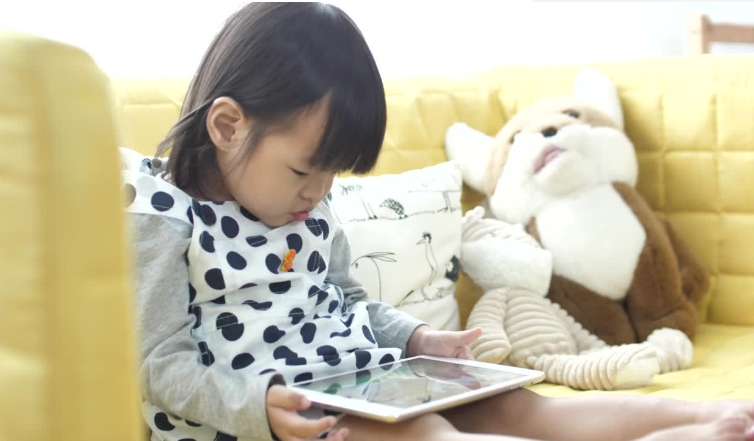A recent EdWeek article titled, Why Printed Books Are Better Than Screens for Learning to Read addresses the debate over print vs digital materials for young learners in an interview with Maryann Wolf, the director of the Center for Dyslexia, Diverse Learners, and Social Justice at UCLA Graduate School of Education and Information Studies.
Wolf begins by saying that the answer is not binary. “There are advantages and disadvantages for each type of medium [e.g., paper books, audiobooks, computers, e-readers, and phones], depending on the purpose or intention.”

“For young children, physical books are best, audio is second best and tablet is a clear third.” While tablets are often more engaging, they promote “passive engagement.” Students learn to be distracted instead of learning to focus. “So between zero and five, the evidence has become quite clear that children’s use of the screen is helping to develop the opposite of what we want in focusing attention.”
Wolf points out that while print is more advantageous for learning, digital materials are useful tools for diagnostic screening and for skills practice, particularly for students with dyslexia or students who have limited background knowledge of a subject.
While students may perceive that they are better readers online because they can read faster, Wolf points out that students can read faster online because screens make it easy to scroll and skim. However, students need to learn deep reading skills using print first and then need to be taught to use those same skills when reading online.
Wolf concludes, “Books are really one of the greatest tools for the mind and should never be lost until we are assured that the same processes that were advantaged there are not being diminished by the other mediums.”
An article in the Hechinger Report titled, “A Textbook Dilemma: Digital or Paper?” discusses Patricia Alexander’s review of research on this topic. Ms. Alexander is an educational psychologist and a literacy scholar at the University of Maryland. Despite numerous (878) potentially relevant studies on the topic, Ms. Alexander pointed out that “only 36 [studies] directly compared reading in digital and in print and measured learning in a reliable way.” Despite the need for further research on this topic, Ms. Alexander found that numerous studies affirm the finding that: “if you are reading something lengthy – more than 500 words or more than a page of the book or screen – your comprehension will likely take a hit if you’re using a digital device.” This pertained to college students as well as students in elementary, middle, and high school.
The research highlights several reasons why:
- Reading online is more physically and mentally demanding (e.g., “the nuisance of scrolling and the tiresome glare and flicker of the screen”) than reading a textbook.
- Online readers may not concentrate as well, distracted by social media alerts, the temptation to browse the internet, etc.
- Reading a printed book leaves spatial impressions in your mind (i.e., where something was on a page) that may not occur with the same frequency online.

Ms. Alexander also addressed whether “note taking on paper offers measurable advantages for learning?” For example, whether highlighting and underlining online versus on paper affected comprehension more positively. She concluded, “Those kinds of motor responses have never been of highest value in terms of text processing strategies.” Rather, “the studying strategy with ‘the greatest power,’ …. involves deeply questioning the text — asking yourself if you agree with the author, and why or why not.”
The point of the research is not to identify a winner; print and digital materials are here to stay. As Ms. Alexander put it, “The core question [is] when is a reader best served by a particular medium? And what kind of readers? What age? What kind of text are we talking about? All of those elements matter a great deal.”
For more research on this topic, see “Don’t throw away your printed books: A meta-analysis on the effects of reading media on reading comprehension.”
This blog from 2019 discusses a review of the research on this same topic. That research pertained to the best medium for students from kindergarten through college. The research is not trying to discern a winner in the debate. Rather, the core question the research is trying to answer is when does a particular medium best serve a reader?
